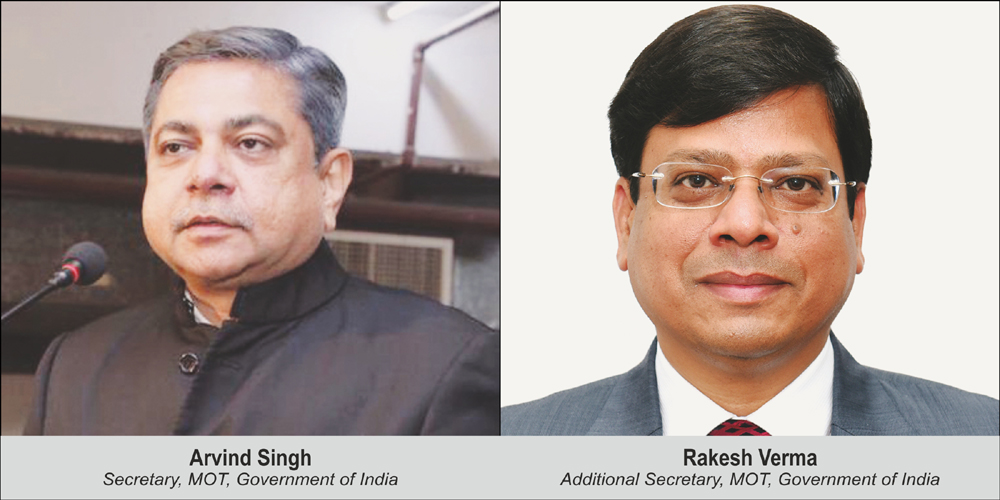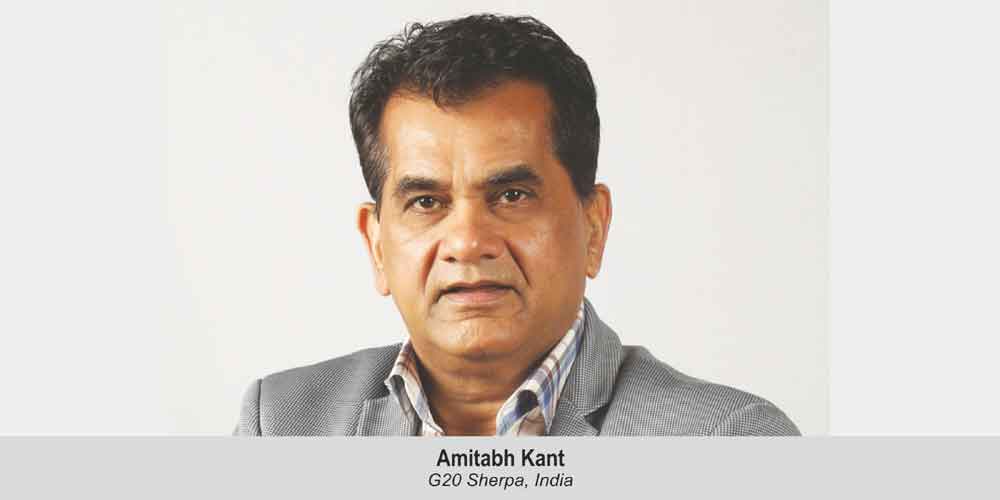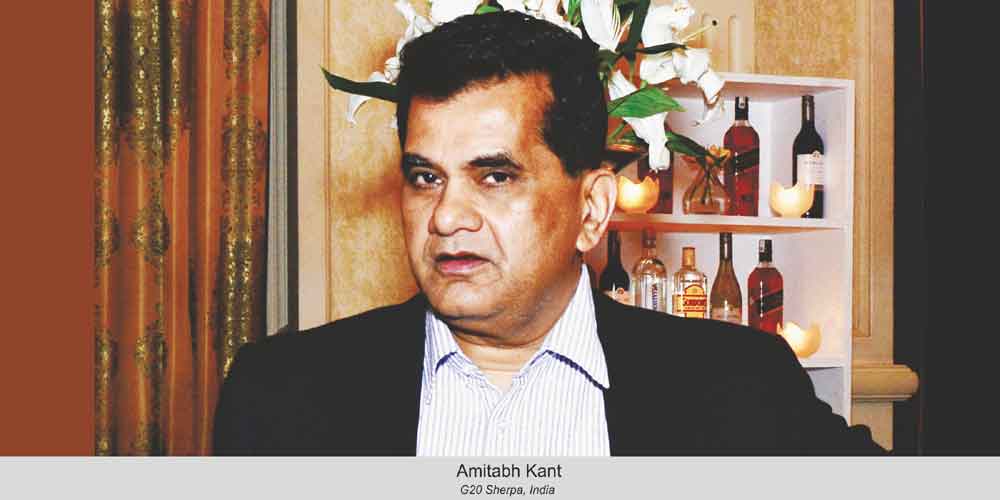The National Strategy for Sustainable Tourism and Responsible Traveller Campaign, launched by the Ministry of Tourism in New Delhi recently, aims to mainstream sustainability in Indian tourism sector and ensure a more resilient, inclusive, carbon neutral and resource efficient tourism, while safeguarding natural and cultural resources.
Janice Alyosius
National Tourism Policy 2022 recognises tourism as a key driver of economic growth in India, as it is one of the fastest growing sectors and has a significant impact on trade, job creation, investment, infrastructure development and social inclusion. Since sustainability is a prerequisite for the long-term growth of tourism, the Union Ministry of Tourism has a prepared national strategy for sustainable tourism in consultation with relevant ministries, state governments and industry stakeholders. The ministry launched the National Strategy for Sustainable Tourism and Responsible Traveller Campaign in New Delhi recently.
The national strategy aims to mainstream sustainability in Indian tourism sector and ensure a more resilient, inclusive, carbon neutral and resource efficient tourism while safeguarding natural and cultural resources. The strategy document identifies the strategic pillars for development of sustainable tourism like promoting environmental sustainability, protecting biodiversity, promoting economic sustainability, promoting socio-cultural sustainability, scheme for certification of sustainable tourism, IEC and capacity building and governance. Promotion and development of sustainable tourism will involve a diverse set of stakeholders.
Speaking at the event, Arvind Singh, Secretary, Tourism, Government of India, said, “Tourism and environment share a special relationship. Their interaction with each other is a two-way process. On the one hand, environmental resources constitute one of the basic ingredients of tourism. The natural and manmade setting form the tourism products that the tourist enjoys. On the other hand, the close and direct relationship between visitors, host communities and local environment create a sensitive situation, whereby tourism can be both damaging as well as positive for sustainable development. The pandemic has further forced the tourism sector to shift its focus to resiliency, sustainability and interconnectedness among diverse stakeholders in the sector.”
The MOT also announced Swadesh Darshan 2.0 on the occasion. Rakesh Verma, Additional Secretary, Ministry of Tourism, Government of India, said, “Our National Strategy for sustainable tourism and Swadesh Darshan schemes are focused on developing sustainable tourist destinations, with the key objective of preserving and enhancing the local culture and natural resources and the contribution of tourism to the local economies. We are going to pick up about 50 destinations for holistic development with focus on domestic tourism.” He added, “Our plan is to select a destination, and while we do that, we will look at two kinds of interventions, one which are capital intensive, consisting of project development, the second is focused on destination improvement and destination development. So, while promoting Azadi ka Amrit Mahotsav at these destinations, we are indirectly recognising our intangible culture heritage and bringing that to the fore.”
Singh said, “We need to make use of cleaner fuels. Prime Minister (Narendra Modi) has also announced that India will increase its capacity of non-fossil energy capacity to 500 GW and meet 50 per cent of its energy requirements through renewable energy by 2030. State tourism policies should recognise sustainability principles and the sustainable development goals in their vision and strategic direction for tourism. With the vision to create a sustainable future for tourism, the Ministry of Tourism has also taken various steps in this direction.”
He said, “The idea of Swadesh Darshan 2.0 is to undertake holistic development with the vision to develop sustainable and responsible tourist destinations. While formulating the guidelines for Swadesh Darshan 2.0 we have kept various elements in mind in order to undertake destination development in a sustainable and responsible manner. Through the Swadesh Darshan 2.0 sustainable and responsible tourism practices will be implemented in various projects and initiatives. The scheme will encourage adoption of principles of sustainable tourism, including environmental, socio-cultural and economic sustainability.”
Some of the initiatives of Swadesh Darshan 2.0 highlight the responsibilities of the states. According to them, states will consult local communities and stakeholders while preparing development projects for destinations. The states will encourage the use of renewable energy and electric vehicles in their projects.
 TravTalk India Online Magazine
TravTalk India Online Magazine





